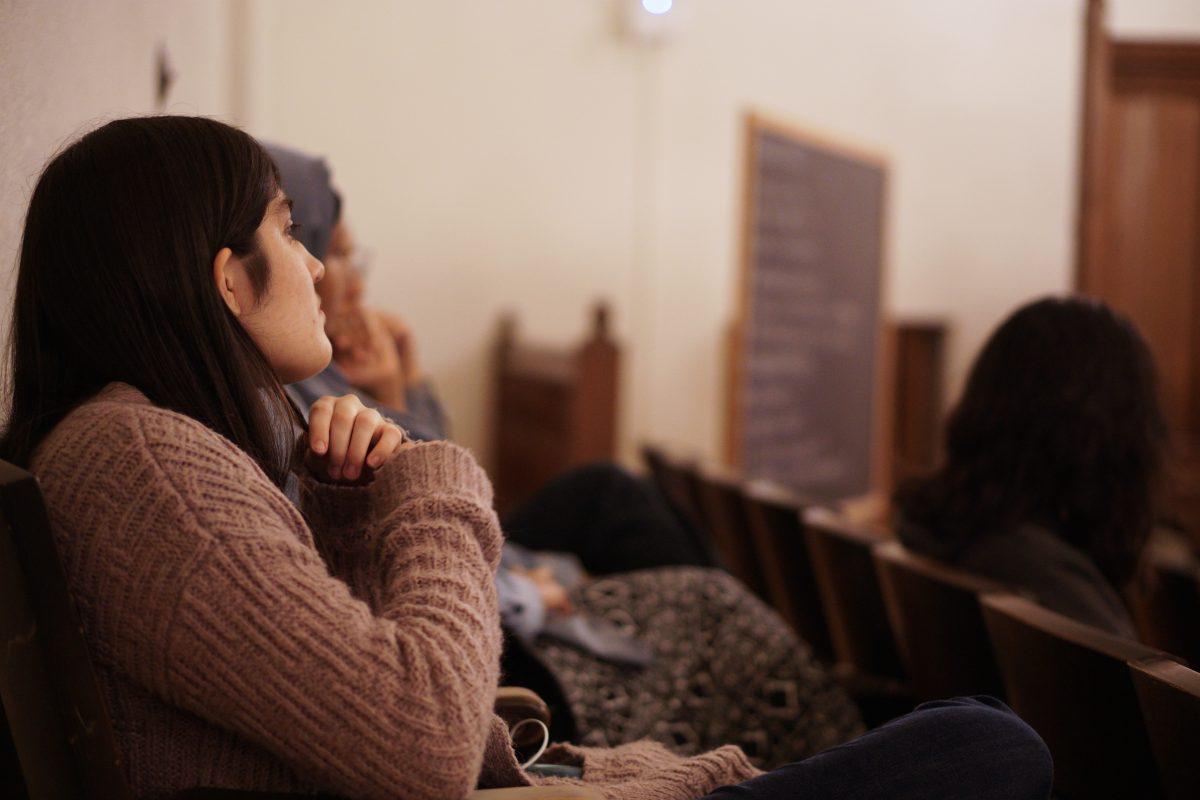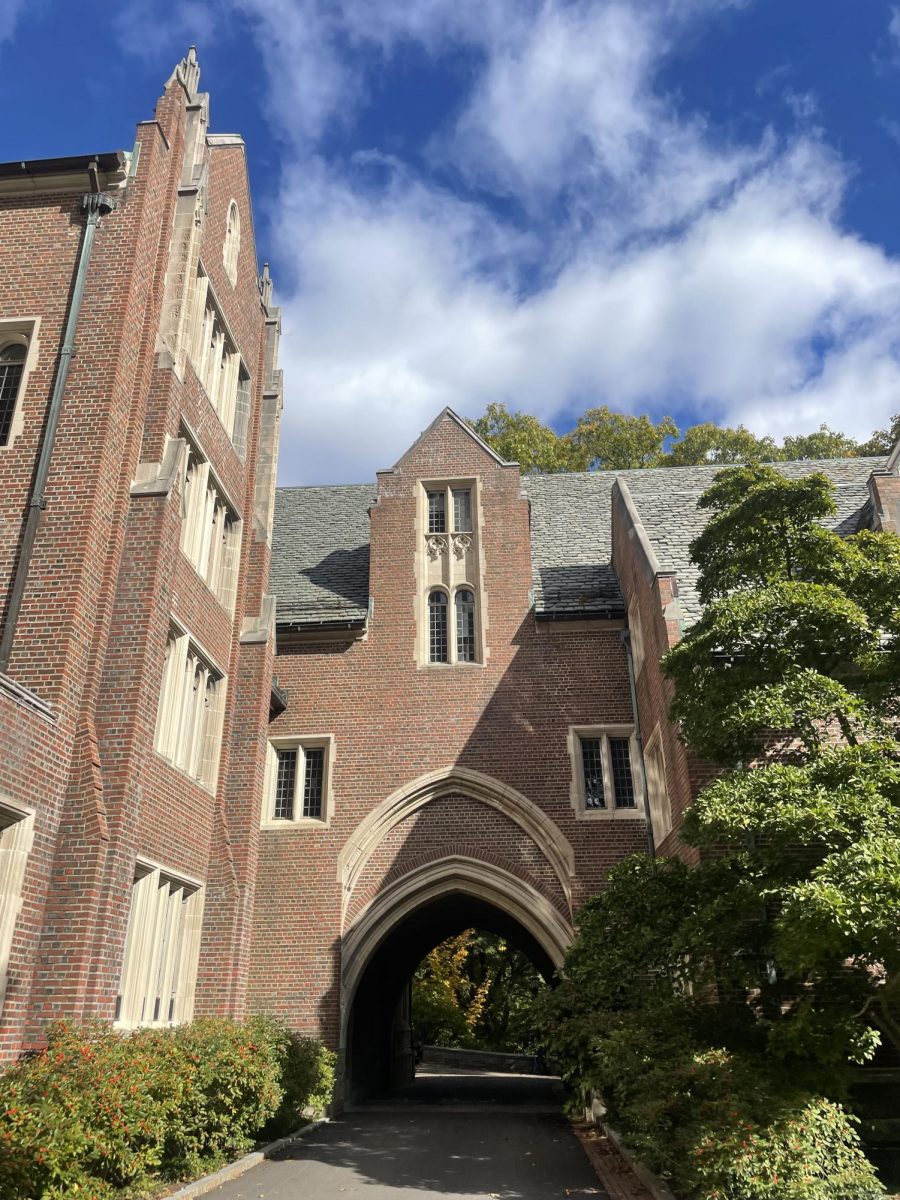Shortly before midnight on Monday, Oct. 30, a small fire broke out in a student’s room on the fifth floor of Tower Court West. Wellesley Fire Rescue responded to the scene, dispatching two fire engines to the building. Wellesley College Police also responded. Assistant Fire Chief Jeffrey Peterson said that the fire department was immediately notified when fire alarms were triggered in the building. Tower’s fire sprinkler system was engaged automatically, and the fire was extinguished before first responders entered the affected room. According to a statement released by Sheilah Horton, vice president of the college and dean of students, the fire occurred after a student burned incense in their fifth-floor room and improperly disposed of it. While damage from the flames was limited to one room, in total, 11 rooms were affected by varying degrees of smoke and water damage.
Tower Court residents who evacuated the building late Monday evening were directed to nearby Lake House to await permission to re-enter their dormitory. Approximately an hour after the initial alarm, students were allowed to return to their rooms. Jessica Schuyler ’18, who lives adjacent to the room in which the fire occurred, reported flooding across the entire landing. Victoria Condon ’19 lives on the fourth floor of Tower Court West and said that her room was affected by water that entered from flooded areas on her own floor as well as from leaks in the ceiling above. Condon stated that the leaks harmed belongings in her room, most significantly her bedding and mattress, which were soaked. While Condon lives nearby and was able to return home for the night, other affected students were forced to look elsewhere for temporary relocation.
Meghan Todd, assistant director of student housing, explained that students who were unable to return to their rooms because of damage were provided with a list of vacancies in residence halls across campus. Most students, Todd noted, chose to stay with friends who offered lodging in light of the incident. The following day, Todd and Sarah Cooper, Tower Court’s area coordinator, invited residents to a meeting during which students were given information about temporary relocation arrangements. In addition to Residential Life staff, Dean Horton noted, representatives from Counseling Services were also present at the Tuesday meeting to offer support to students.
meeting Office of Religious and Spiritual life, a peer health educator, a dean, or others.
The writers, in both the original document and their statement, affirm that the standards are not meant to be a new policy to which organizations must adhere, but rather “a resource for orgs to use—or not use—and modify as they see fit.”
The writers encourage students and organizations to adopt and adapt the standards to fit their needs. Sarah Yan ’20, co-social chair of the Asian Student Union (ASU), praised the student initiative, specifically noting that “if there’s [an issue] that is bothering a considerable amount of the population … then students should speak up about it.”
Carla Aguilar ’19, vice president of Mezcla, noted that guidelines for organizations, particularly cultural ones like Mezcla, are helpful because “issues of discrimination in our community, and on campus, hurt our members and leave our leaders feeling like they can’t always address each issue with the necessary attention.”
Likewise, Sarah Nwafor ’20, vice president of Sexual Assault Awareness for Everyone, generally supported the document, stating that “for a long time there were spaces—a kind of a gap—within orgs for situations of misconduct will be handled, and I think this is a very good document for different orgs to adapt as they need.”
Nwafor and Aguilar, though generally supportive of the standards, also expressed caveats. For Nwafor, the main issue is the lack of a means to enforce the document. The writers note that the standards are meant to be adapted to each organization’s needs and not as an enforced college-wide policy. Aguilar is concerned that placing the responsibilities listed in the standards on students is unreasonable. She said, “There is only so much as students we can do to provide for our community, and I think we should find a way to extend these policies to the greater Wellesley community so it’s understood that orgs shouldn’t be the only safe haven for students on campus.”
Some students, like Angela Coco ’19, president of the Wellesley Pre-Law Society, found that the presentation of the standards took away from the writers’ mission. Coco believes the document is presumptuous, and argued that the opening line—“This document was created in response to the glaring lack of institutional avenues”—is accusing, “especially when they [the writers] go on to suggest that most orgs don’t exercise basic empathy.” She continued to speculate that the document “seems more like a backhand to several specific orgs.”
When asked about the disciplinary action suggested by the standards, Coco stated: “It shouldn’t be possible for students to ‘kick’ other students off an org over perceived infractions to make-believe rules.”






